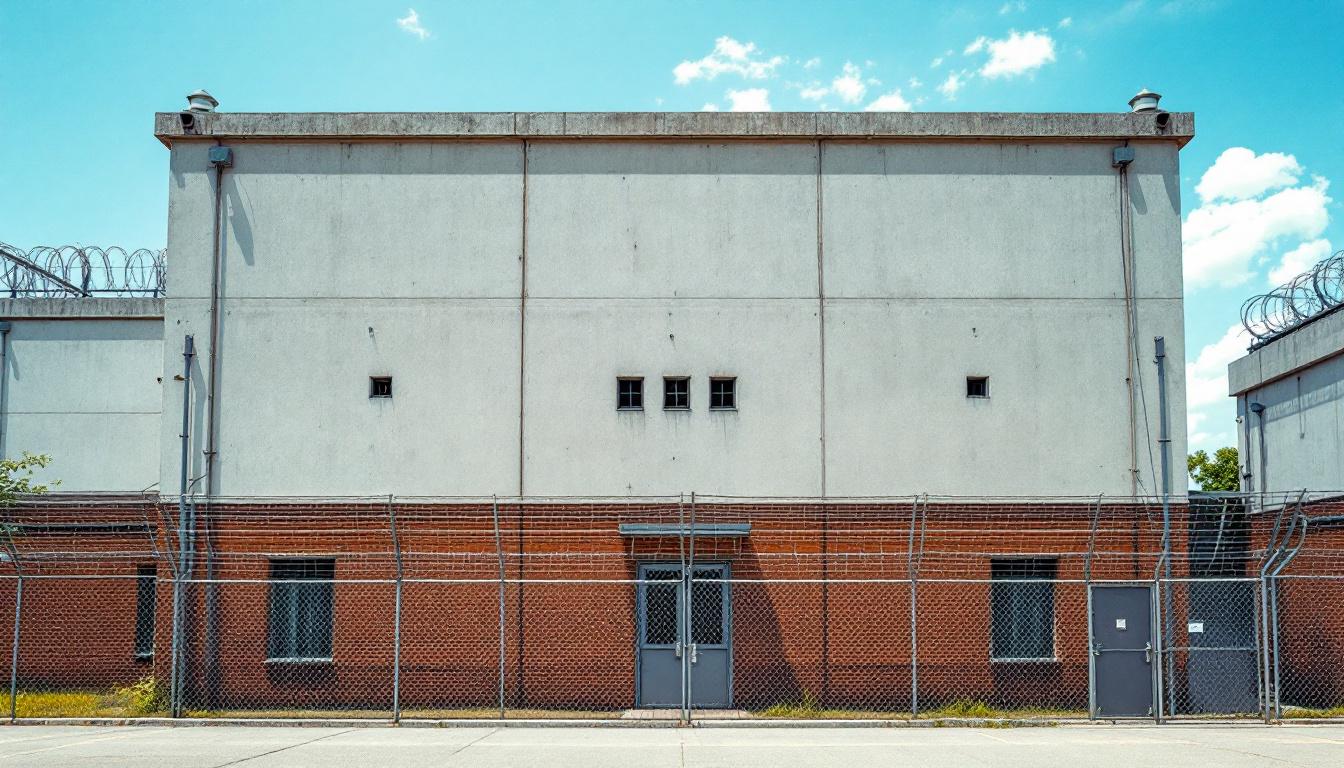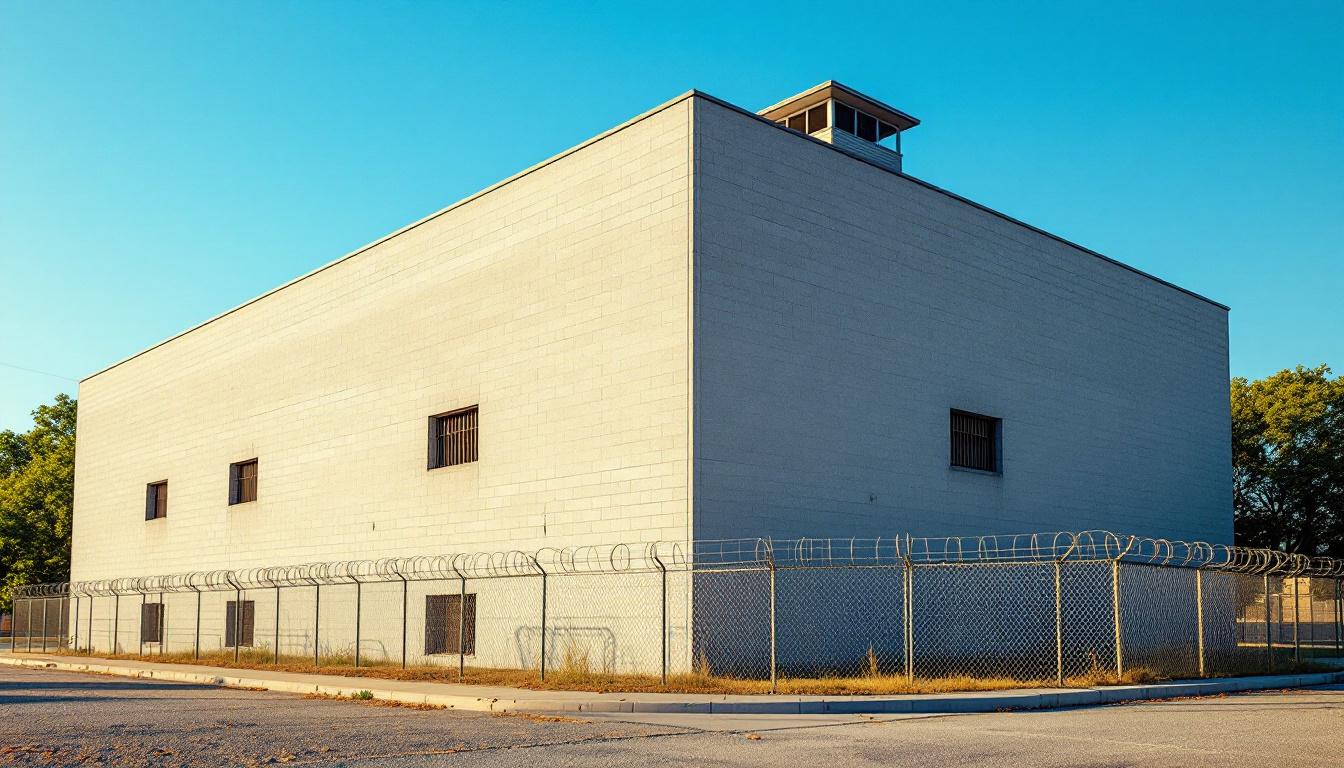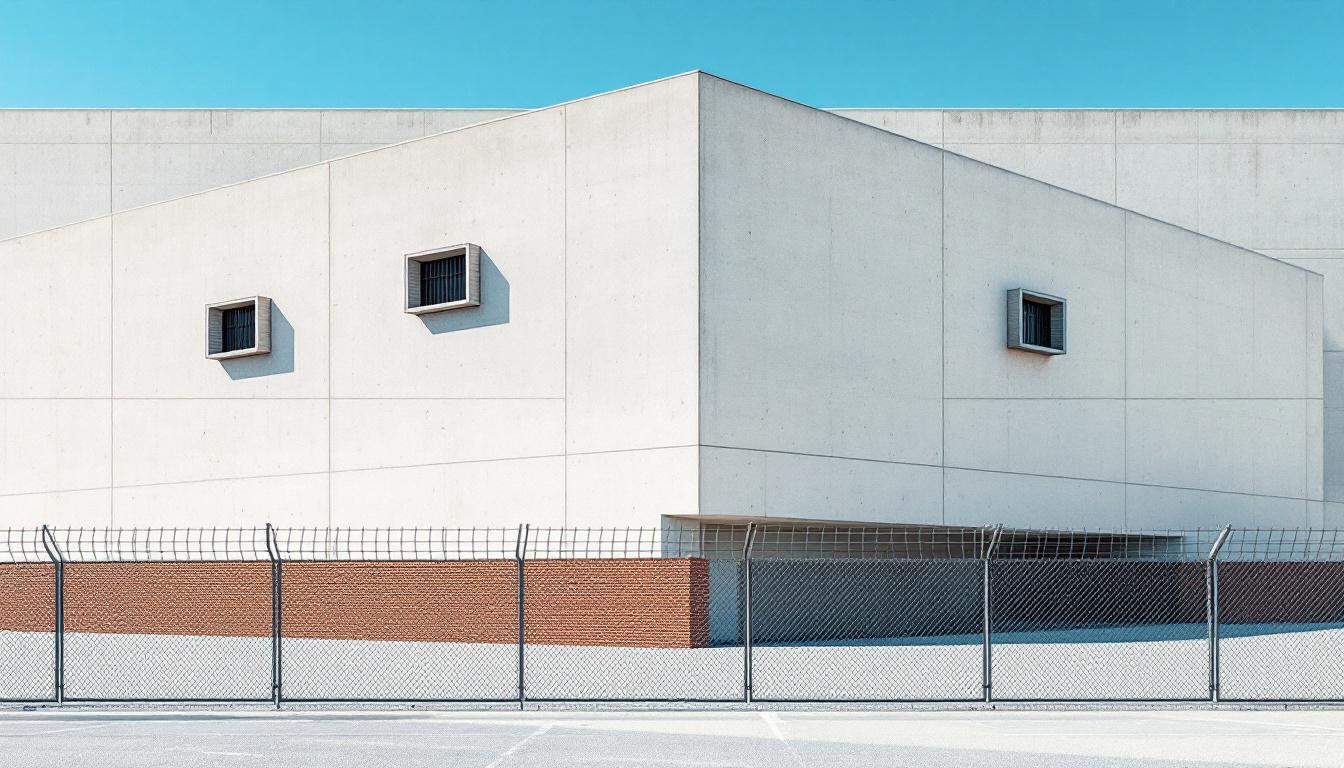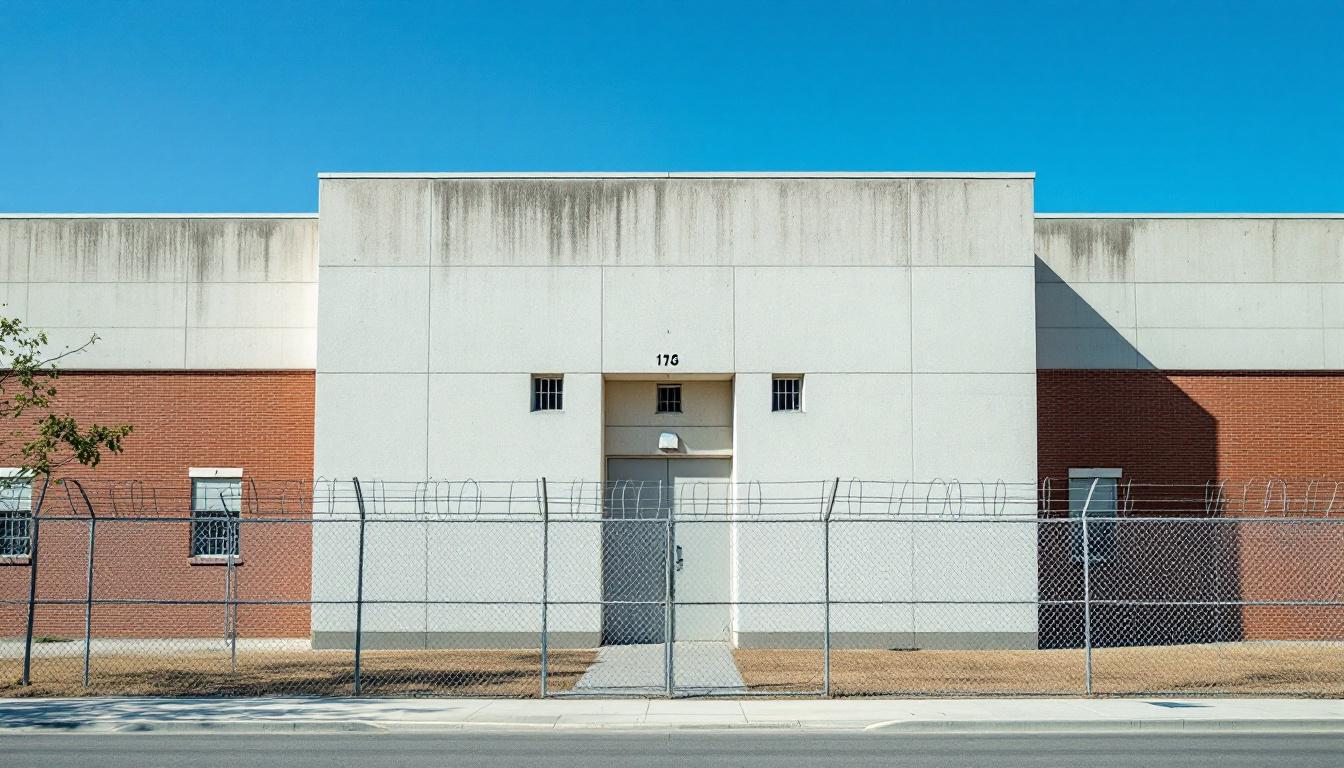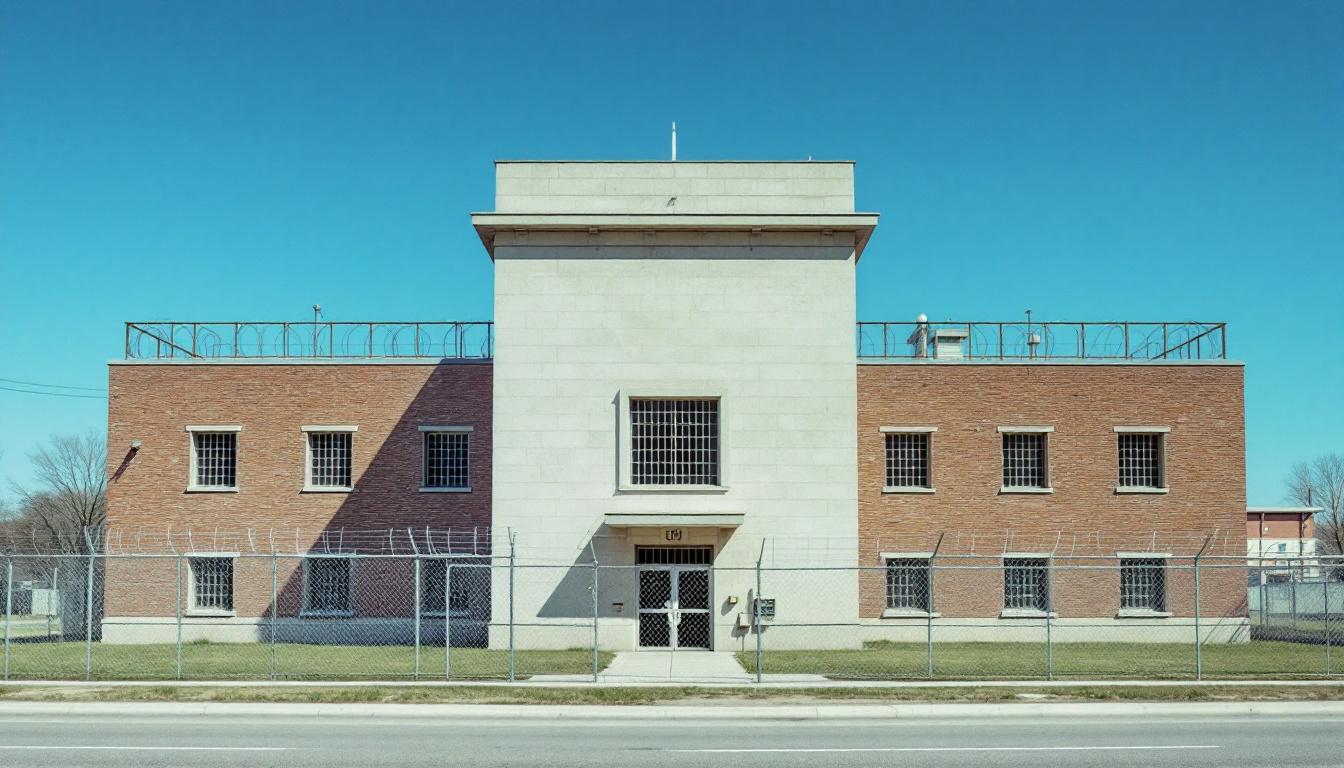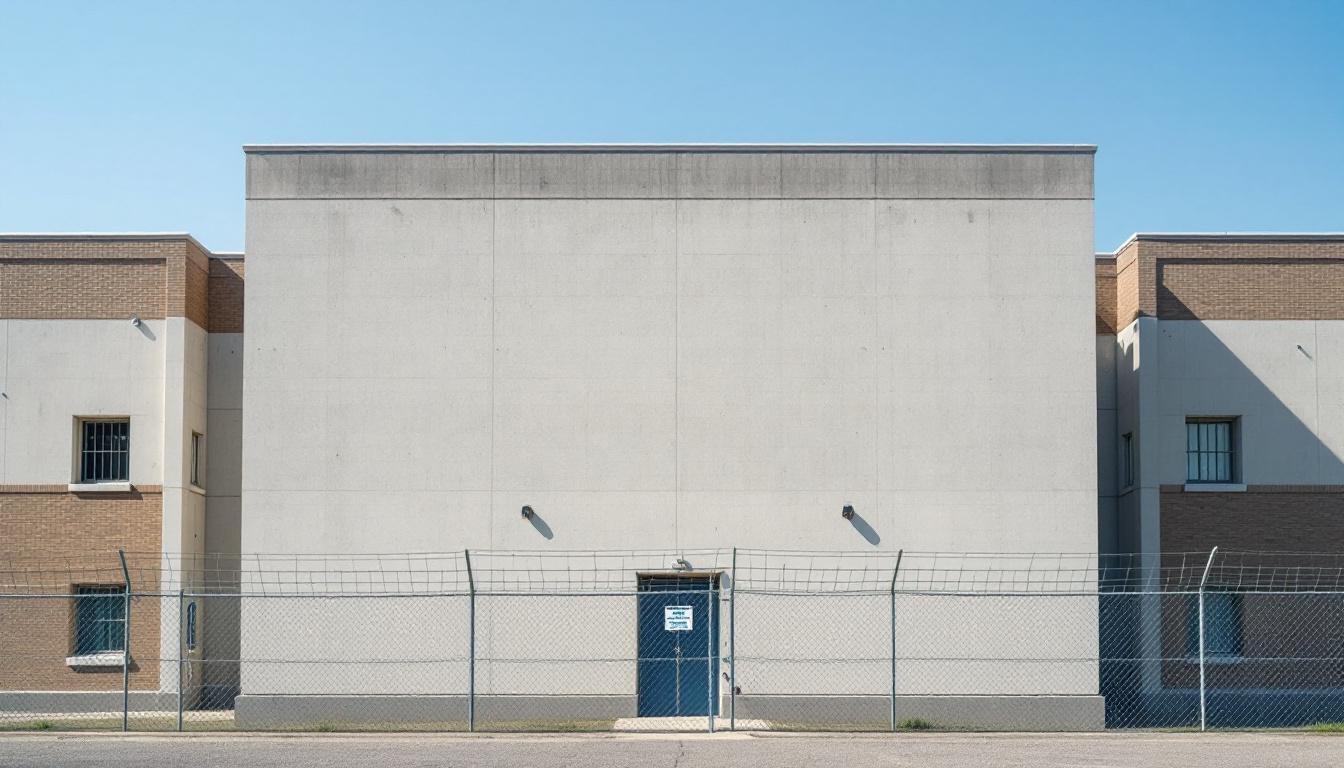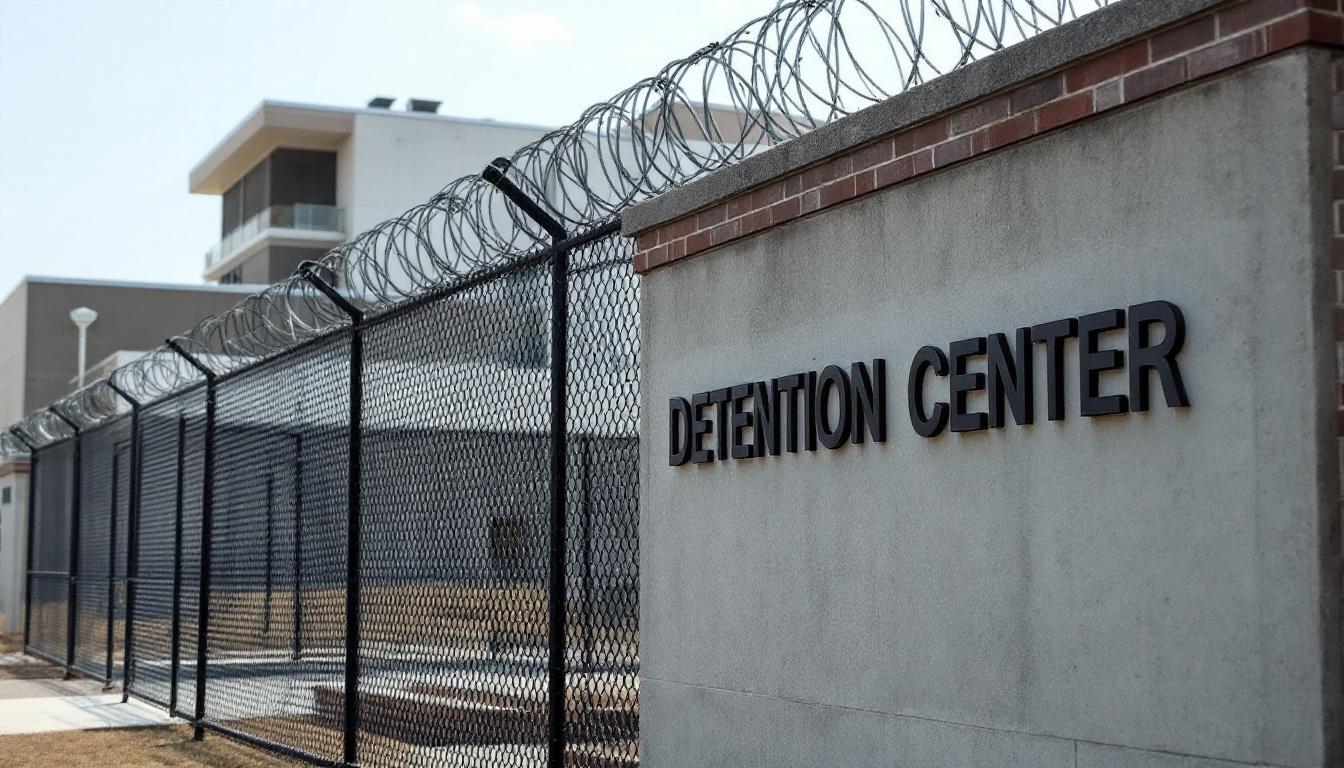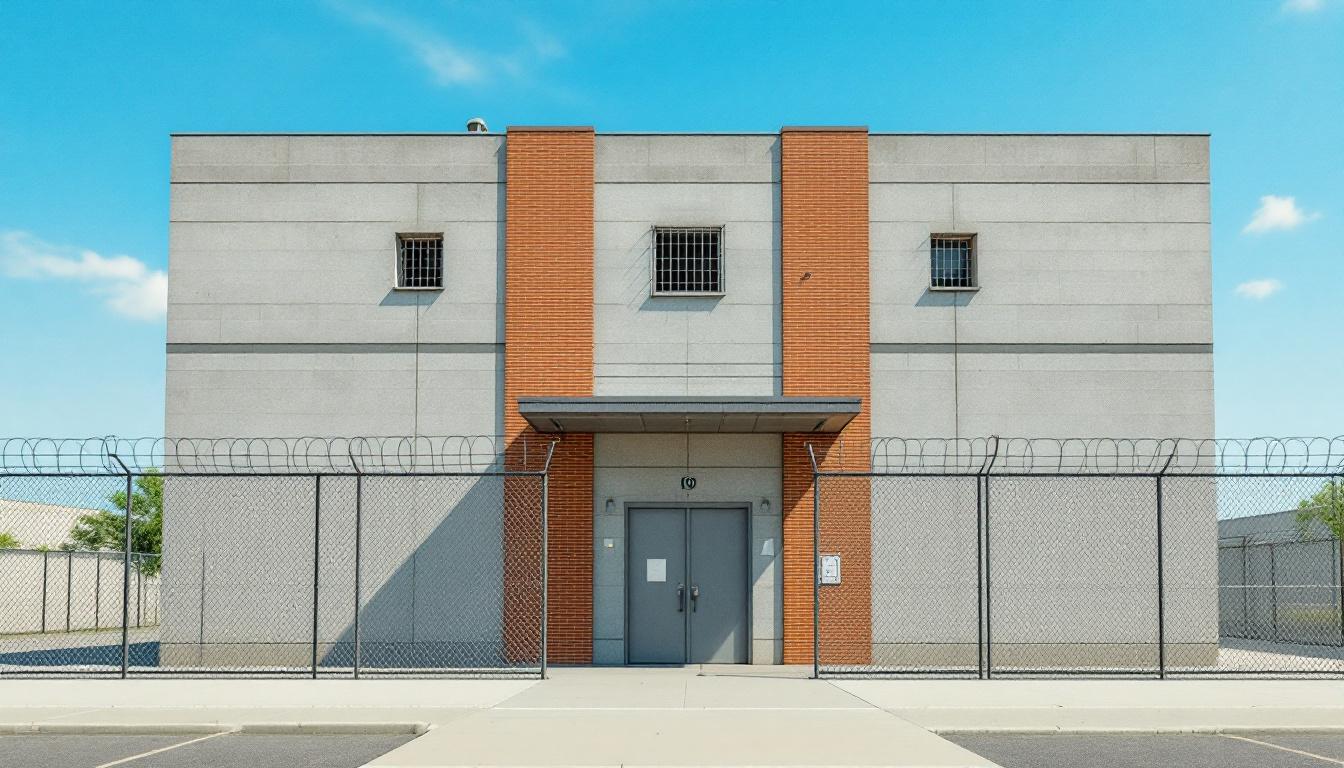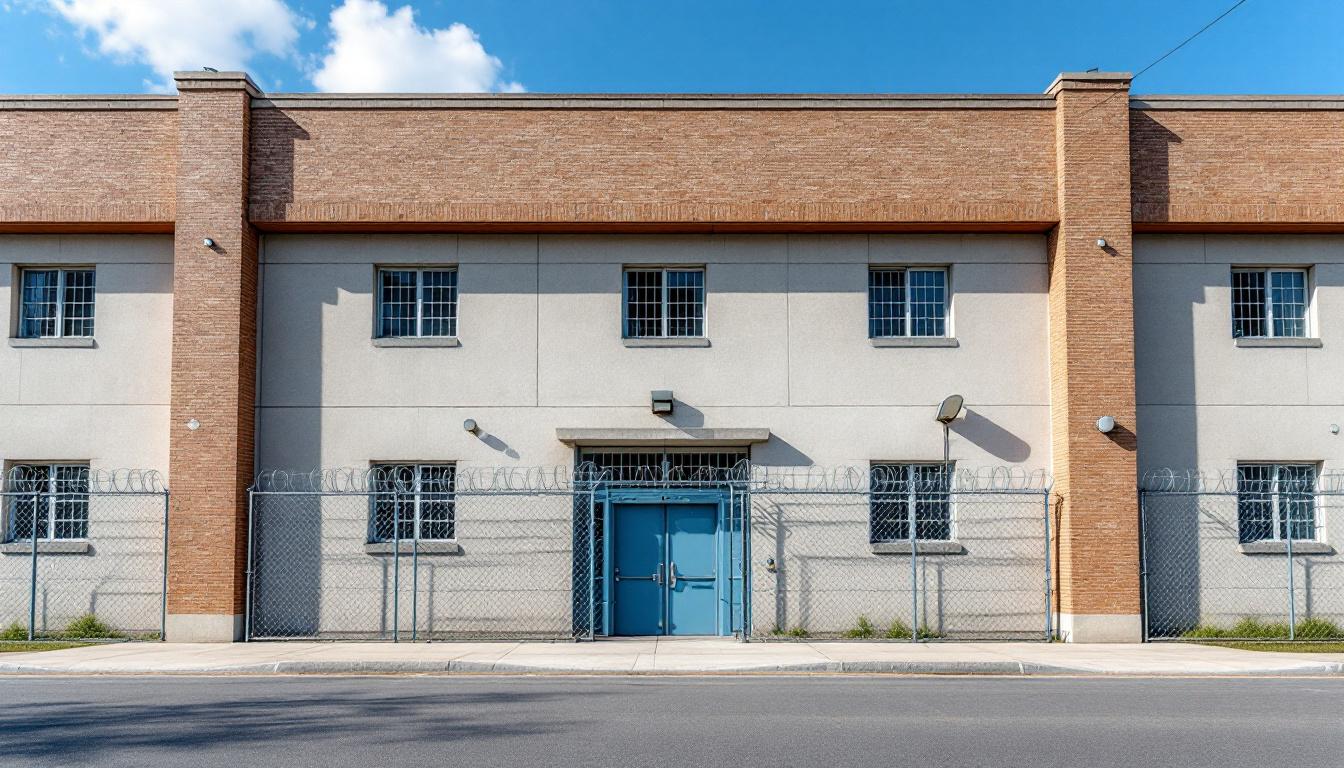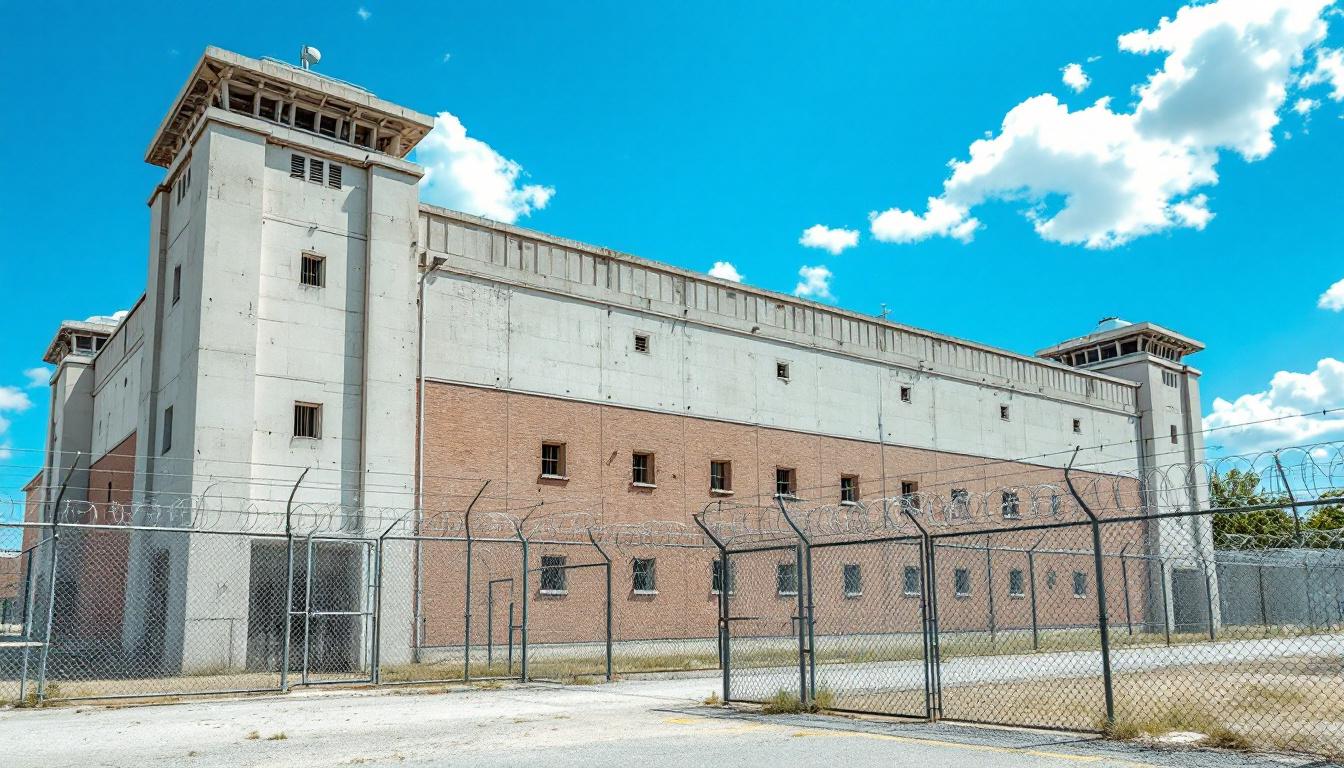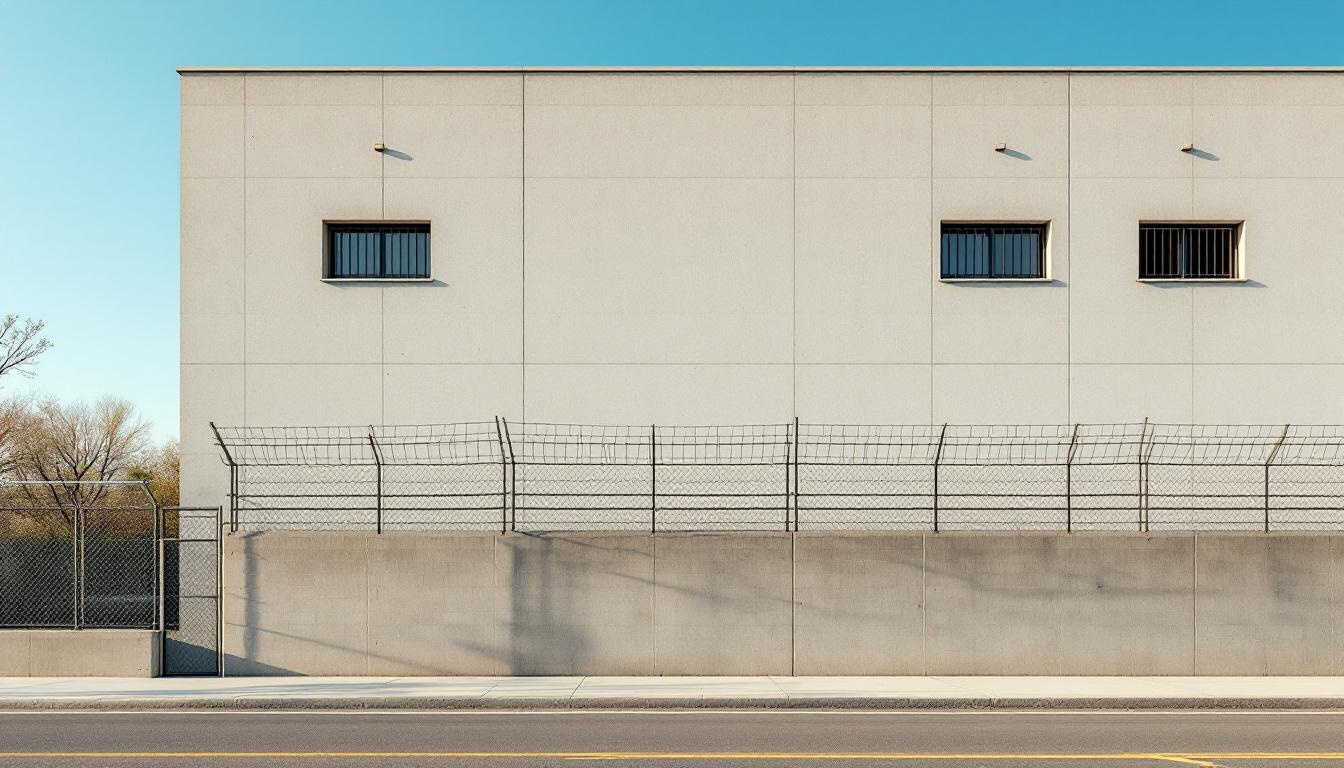
Quick Navigation
How to contact an inmate at New Hanover County Detention Facility
This comprehensive guide will walk you through how to connect with an inmate at New Hanover County Detention Facility. Follow the steps below to find an inmate and send letters and photos:
- Search for the inmate using our search tool below
- Create your account or log in to Penmate
- Write your message (up to 6,000 characters)
- Send instantly - inmates receive printed copies daily
Find an Inmate
Search for an inmate to start communicating today
Tip: You can search by first name, last name, or inmate ID number
To contact a person at New Hanover County Detention Facility start by searching for the person on the facility website. Perform a search by following these steps:
- Step 1: Enter their first name and last name into the search form and click "Search"
- Step 2: Locate their inmate record
- Step 3: Write down their Inmate ID and any housing information provided
Important! Be sure to enter the person's full name. Nicknames should not be used.
How to Send Messages to Inmates

You can use your phone or computer to send emails, letters, and photos to an inmate. Messages are sent electronically to inmate tablets or kiosks at the facility. If you would like to send a message, start by searching for an inmate at New Hanover County Detention Facility.
Sending Photos and Postcards

A great way to send love and support to a loved one at New Hanover County Detention Facility is to send photos and postcards. It only takes a few minutes to send photos from your phone and it makes a huge difference. You can also mail postcards with words of support and inspiration, or design your own postcard for special moments like birthdays and holidays.
Important! Be sure not to send any explicit photos or they may not be approved by the facility. You can also use a photo printing app like Penmate to make sure your photos are printed at the correct size (4x6 or 3x5) and are mailed according to the rules and regulations of New Hanover County Detention Facility.
Frequently asked questions about New Hanover County Detention Facility
-
How long does it take to deliver a message?
If you're sending an email message your letter is usually delivered within 24-48 hours. For messages sent via mail you should expect delivery within 3-7 days. All messages will need be approved by New Hanover County Detention Facility.
-
How much does it cost to send a message to New Hanover County Detention Facility?
You can send a message free using your phone or mail a message via USPS for the price of a $0.60 stamp and envelope. You can also purchase credits or e-stamps from services starting at $1.99.
-
What services can I use to contact an inmate at New Hanover County Detention Facility?
Penmate
You can use Penmate to send letters and photos to an inmate from your phone. It's an easy way to stay in touch during your loved one's incarceration. Use the inmate locator to find an inmate's location and contact information, then you can send messages within a few minutes.
Securus messaging
Securus may be another option for communicating with an inmate at New Hanover County Detention Facility. You can create a friends and family account and purchase credits to send messages. All messages will be reviewed and must be approved by the facility.
JPay
Some county jails and state prisons may support sending messages with JPay. You must register an account with the system, find your loved one, and purchase stamps to send messages. For some locations you can also attach photos.
Smart Jail Mail
You may also check if Smart Jail Mail is available at New Hanover County Detention Facility. Smart Jail Mail is operated by Smart Communications and has contracted with some state and county jails. After purchasing credits, your messages and photos are sent to the facility, printed out, and then handed out to your loved one.
-
What is the mailing address of New Hanover County Detention Facility?
Mailing address:
New Hanover County Detention Facility
3950 Juvenile Center Rd
Castle Hayne, NC 28429
Phone: (910) 798-4200Business hours:
- Monday: Open 24 hours
- Tuesday: Open 24 hours
- Wednesday: Open 24 hours
- Thursday: Open 24 hours
- Friday: Open 24 hours
- Saturday: Open 24 hours
- Sunday: Open 24 hours
-
What are the visiting hours at New Hanover County Detention Facility?
Visiting hours at New Hanover County Detention Facility vary by housing unit and security level. Generally, visits are scheduled on weekends and holidays, with some facilities offering weekday visits. Contact the facility directly at (910) 798-4200 or check their website for the current visiting schedule. Visits typically last 30-60 minutes and must be scheduled in advance.
-
What items are prohibited when sending mail to New Hanover County Detention Facility?
Prohibited items typically include: cash, personal checks, stamps, stickers, glitter, glue, tape, staples, paperclips, polaroid photos, musical or blank greeting cards, hardcover books, magazines with staples, and any items containing metal or electronics. Only send letters on plain white paper with blue or black ink. Photos must be printed on regular photo paper (no Polaroids). Always check with New Hanover County Detention Facility for their specific mail policies.
-
How do I send money to an inmate at New Hanover County Detention Facility?
You can send money to an inmate at New Hanover County Detention Facility through several methods: 1) Online using JPay, Access Corrections, or the facility's approved vendor, 2) Money orders mailed directly to the facility with the inmate's name and ID number, 3) Kiosks located in the facility lobby, or 4) Over the phone using a credit or debit card. Fees vary by method, typically ranging from $2.95 to $11.95 per transaction.
-
Can I schedule a video visit with an inmate at New Hanover County Detention Facility?
Many facilities now offer video visitation as an alternative to in-person visits. At New Hanover County Detention Facility, video visits may be available through services like Penmate, Securus Video Connect, GTL, or ICSolutions. Video visits typically cost $10-20 for 20-30 minutes and must be scheduled in advance. You'll need a computer or smartphone with a camera and reliable internet connection. Contact the facility for their specific video visitation policies and approved vendors.
-
What identification do I need to visit an inmate at New Hanover County Detention Facility?
All visitors must present valid government-issued photo identification such as a driver's license, state ID, passport, or military ID. Minors must be accompanied by a parent or legal guardian who can provide the minor's birth certificate. Some facilities require visitors to be on the inmate's approved visitation list, which may require a background check. Contact New Hanover County Detention Facility for specific ID requirements and visitor approval procedures.
-
How can I find out an inmate's release date?
To find an inmate's release date at New Hanover County Detention Facility, you can: 1) Use the online inmate search tool if available, 2) Call the facility's records department, 3) Contact the inmate's case manager or counselor, or 4) Have the inmate provide this information during a call or visit. For privacy reasons, some facilities only release this information to immediate family members.
Facility Overview
Contact Information
New Hanover County Detention Facility3950 Juvenile Center Rd
Castle Hayne, NC 28429
Phone: (910) 798-4200
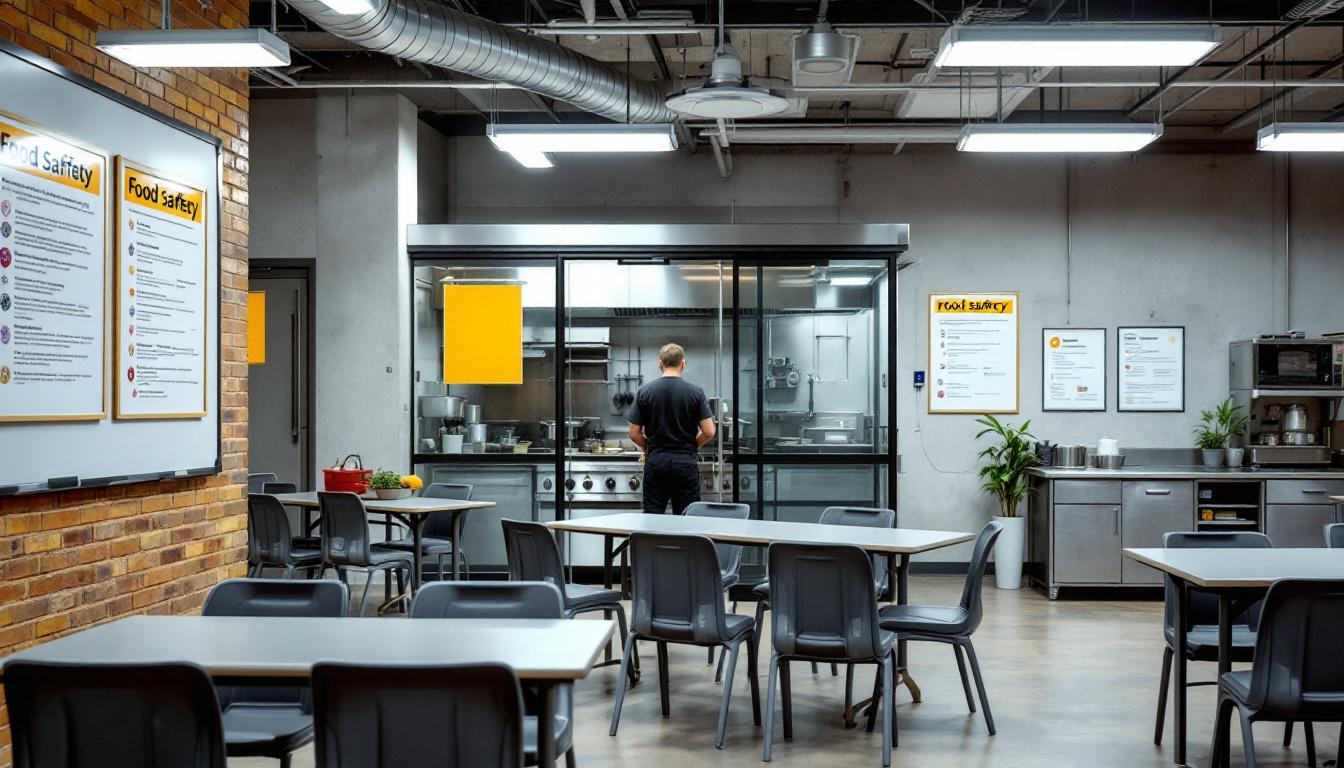
About New Hanover County Detention Facility
Community partnerships form the cornerstone of effective reintegration efforts at New Hanover County Detention, NC, where the facility's commitment to breaking cycles of recidivism extends far beyond its walls in Castle Hayne. This NC correctional facility recognizes that successful reentry begins during incarceration, fostering connections between inmates and the broader southeastern North Carolina community through collaborative programming and resource coordination. The detention center typically works alongside local organizations to address the underlying factors that may contribute to criminal behavior, including substance abuse, mental health challenges, educational gaps, and employment barriers.
Located in the growing Castle Hayne area, the facility generally provides inmates services that emphasize skill development and personal accountability within a structured environment. Rehabilitation programs may include educational opportunities, vocational training, substance abuse counseling, and mental health support, all designed to prepare individuals for successful community reintegration. The detention center often facilitates connections with community-based organizations that can provide continued support upon release, recognizing that sustainable change requires ongoing assistance and mentorship. Through these collaborative efforts, the facility aims to reduce recidivism while strengthening community safety and supporting families affected by incarceration.
Programs & Services
Personal transformation through structured learning opportunities forms the cornerstone of rehabilitative services at New Hanover County Detention in North Carolina. The facility's comprehensive approach to inmate development recognizes that meaningful change occurs when individuals are equipped with practical skills, educational foundations, and therapeutic support systems that address underlying challenges. Through carefully designed service delivery methods, inmates gain access to resources that foster both immediate personal growth and long-term community reintegration success.
Educational services typically encompass fundamental literacy development alongside more advanced academic pursuits, enabling inmates to strengthen their intellectual foundations while working toward meaningful credentials. The facility may provide vocational training opportunities that prepare participants for sustainable employment upon release, with culinary arts services often serving as a particularly valuable pathway for developing marketable skills in the food service industry. These hands-on learning experiences allow inmates to build confidence while mastering practical competencies that translate directly into career opportunities.
Support services extend beyond traditional educational offerings to include specialized commercial driving (CDL) preparation, which may provide inmates with access to transportation industry employment opportunities that offer stable wages and career advancement potential. Also available are substance abuse programs designed to address the underlying behavioral patterns that frequently contribute to criminal justice involvement. These therapeutic services typically employ evidence-based approaches that help participants develop coping strategies, understand addiction dynamics, and build the personal accountability necessary for sustained recovery and successful community reintegration.
Daily Life & Visitation
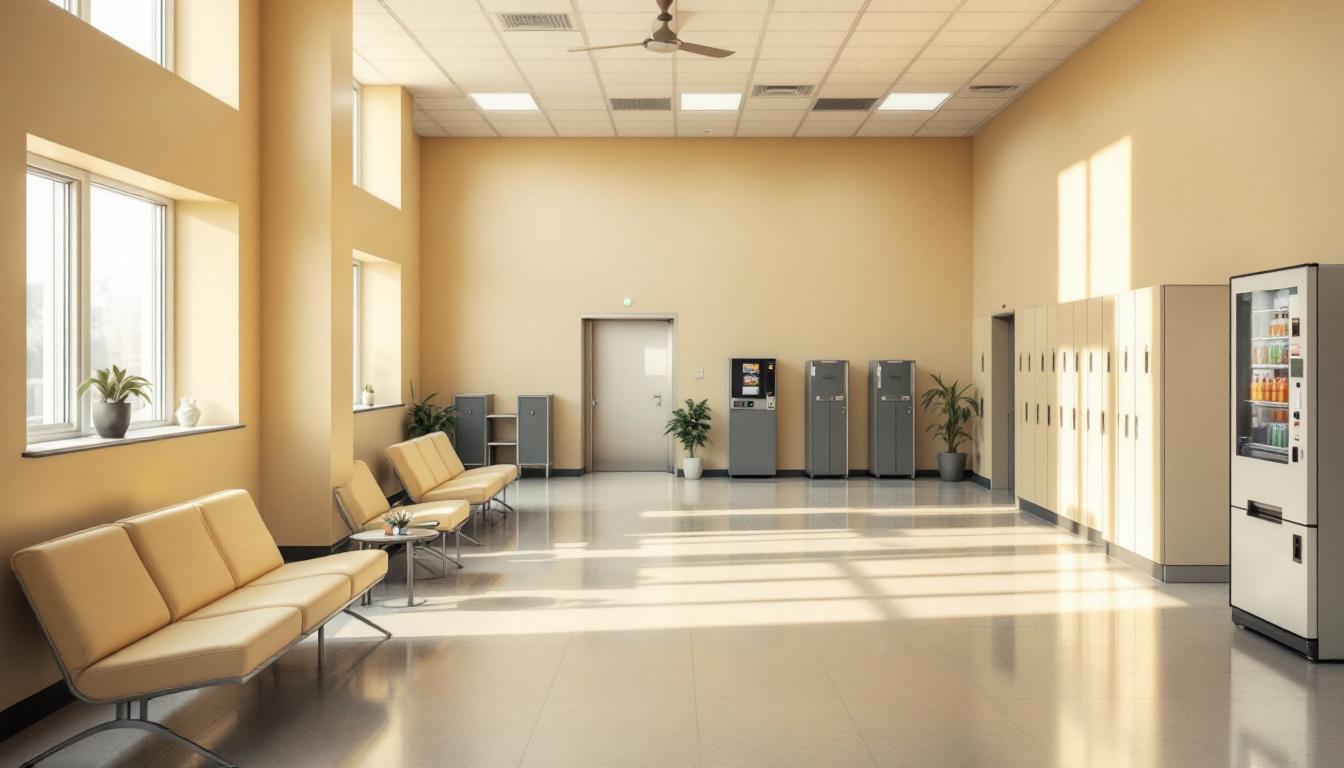
The concrete walls and steel doors of New Hanover County Detention create a controlled environment where every movement is monitored and every hour carries predetermined expectations. Within this structured setting, inmates typically begin their day with early morning counts, followed by meal service in designated dining areas where they may gather in small groups under staff supervision. Today's routine generally includes scheduled activities that provide structure and purpose, while inmates consistently adapt to the regimented schedule that governs everything from wake-up calls to evening lockdown procedures.
The living accommodations at the facility usually consist of multi-occupancy cells or dormitory-style housing units, where inmates share compact spaces equipped with basic necessities including beds, storage areas, and bathroom facilities. Personal property allowances are typically limited to essential items and approved commissary purchases, encouraging inmates to adapt to a minimalist lifestyle. However, common areas often provide spaces for television viewing, reading, and quiet conversation during designated recreation periods, allowing residents to maintain some social connections within the institutional environment.
Also available are various work assignments that may include kitchen duties, facility maintenance, or laundry services, providing inmates with opportunities to develop routine and responsibility during their stay. Educational programming and recreational activities generally offer additional structure to daily life, while visitation policies typically allow for scheduled family contact through in-person visits or video conferencing systems. Communication with loved ones usually includes monitored phone calls and correspondence, helping inmates maintain important family connections that often prove essential for successful adaptation to the detention environment and eventual reintegration into the community.
Ready to Connect?
Start communicating with your loved one today
Search for an Inmate
